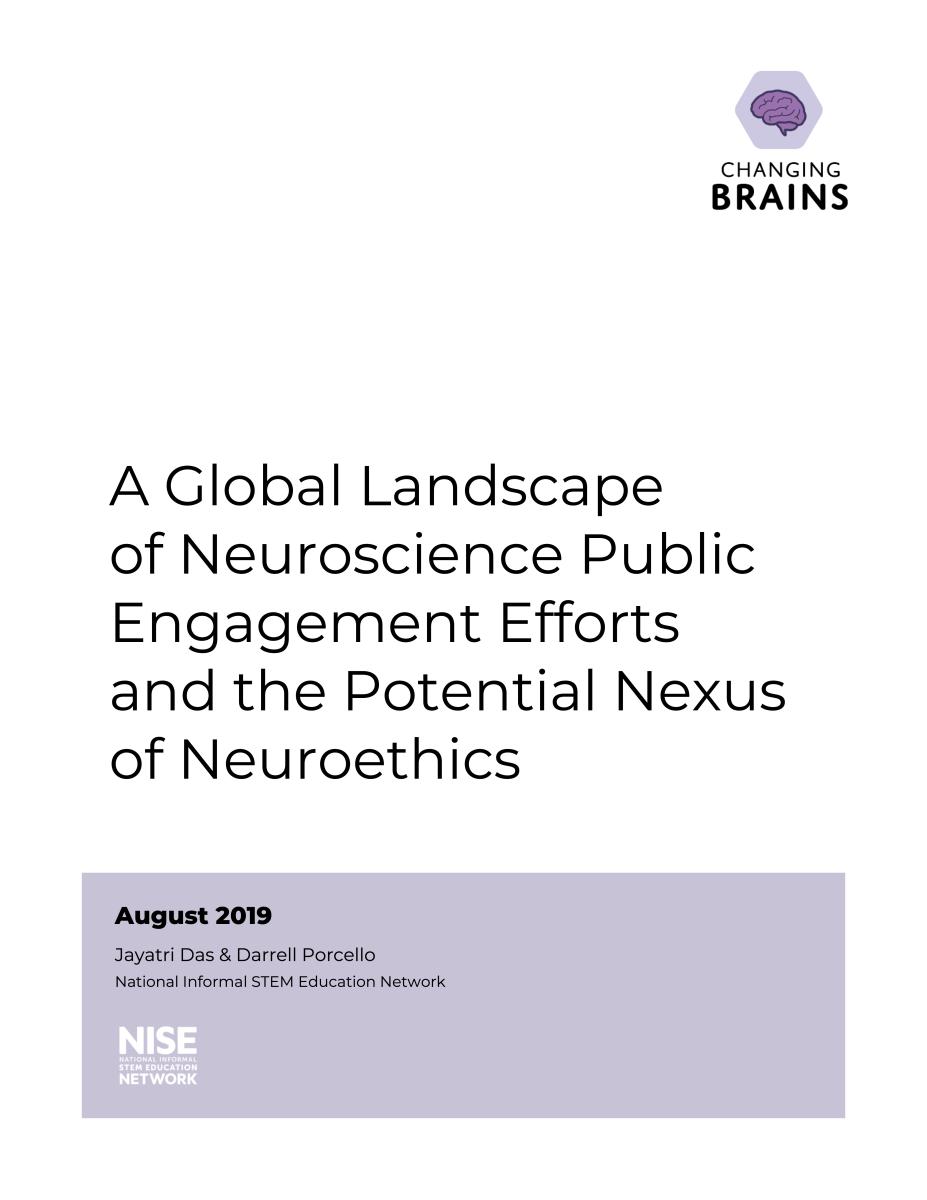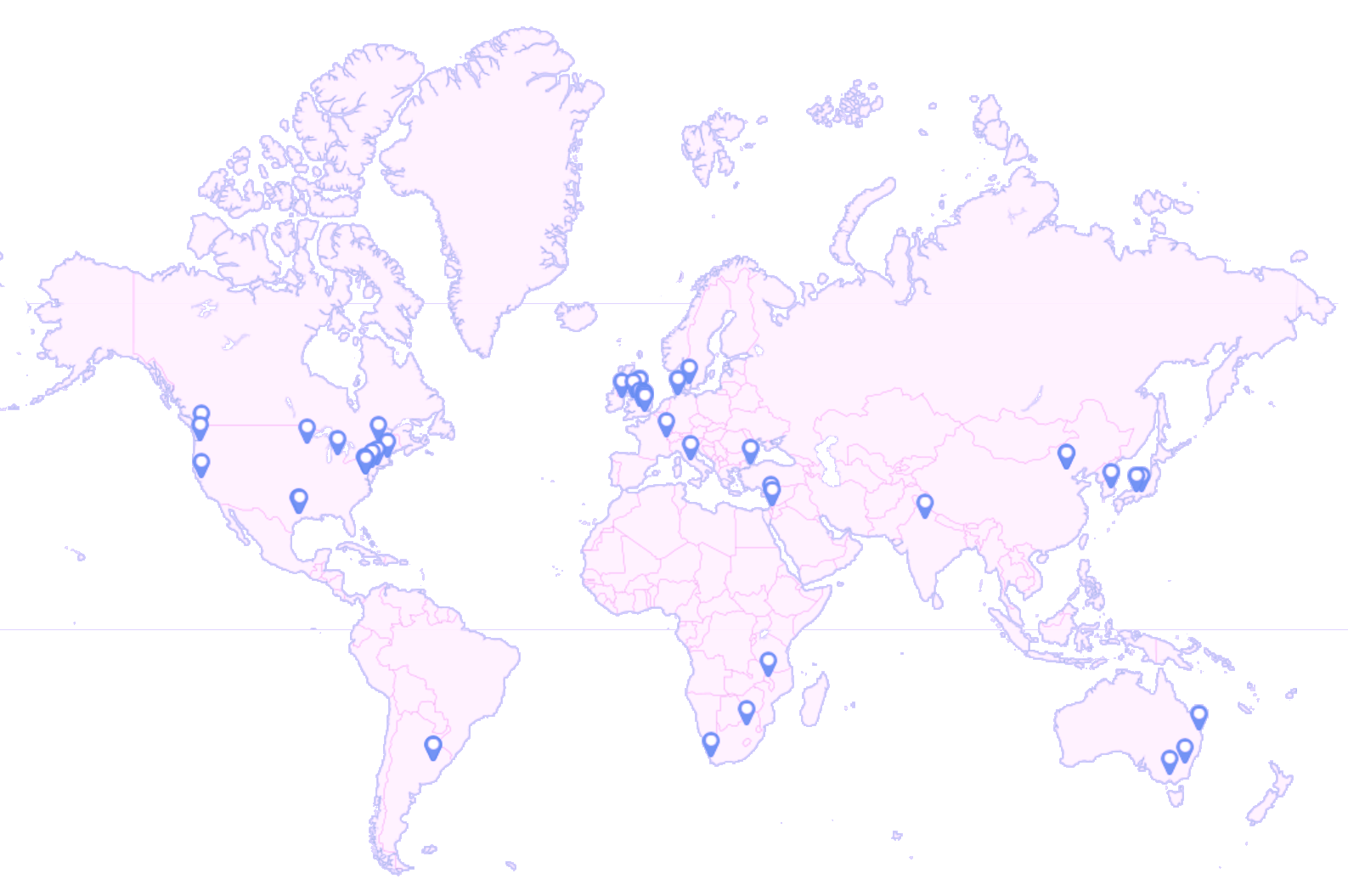DESCRIPTION
Neuroscience is rapidly advancing, presenting new frontiers for researchers, patients, and public audiences alike. A global community of international brain research projects has sought to embed neuroethics in both practical and theoretical aspects of scientific progress and technological development. Given the recognized need for public input on potential individual and societal implications of neuroscience, the NISE Network, in partnership with The Kavli Foundation and the Neuroethics Working Group of the International Brain Initiative, conducted a series of interviews with neuroscientists, neuroethicists, patient advocates, and educators to characterize the landscape of neuroscience public engagement efforts around the world with possible connections to fundamental questions in neuroethics. This report summarizes the findings from these interviews by: describing five different categories of engagement styles in this area, reflecting on the lessons learned from previous interactions between experts and public audiences on other socio-scientific questions, and presenting several cross-cutting challenges and opportunities.
Authors:
Jayatri Das, Franklin Institute and Darrell Porcello, Children's Creativity Museum
Citation:
Das, J., and D. Porcello (2019). A Global Landscape of Neuroscience Public Engagement Efforts and the Potential Nexus of Neuroethics, Philadelphia, PA: The Franklin Institute for the NISE Network, 41p.
DESCRIPTION
Neuroscience is rapidly advancing, presenting new frontiers for researchers, patients, and public audiences alike. A global community of international brain research projects has sought to embed neuroethics in both practical and theoretical aspects of scientific progress and technological development. Given the recognized need for public input on potential individual and societal implications of neuroscience, the NISE Network, in partnership with The Kavli Foundation and the Neuroethics Working Group of the International Brain Initiative, conducted a series of interviews with neuroscientists, neuroethicists, patient advocates, and educators to characterize the landscape of neuroscience public engagement efforts around the world with possible connections to fundamental questions in neuroethics. This report summarizes the findings from these interviews by: describing five different categories of engagement styles in this area, reflecting on the lessons learned from previous interactions between experts and public audiences on other socio-scientific questions, and presenting several cross-cutting challenges and opportunities.
Authors:
Jayatri Das, Franklin Institute and Darrell Porcello, Children's Creativity Museum
Citation:
Das, J., and D. Porcello (2019). A Global Landscape of Neuroscience Public Engagement Efforts and the Potential Nexus of Neuroethics, Philadelphia, PA: The Franklin Institute for the NISE Network, 41p.
DOWNLOAD FILES
Credits
Developed for the NISE Network. This material was based on work supported by The Kavli Foundation. Any opinions, findings, and conclusions or recommendations expressed in this program are those of the authors and do not necessarily reflect the views of the Foundation.
Creative Commons Attribution Non-Commercial Share Alike 3.0 United States (CC BY-NC-SA 3.0 US).
View more details



